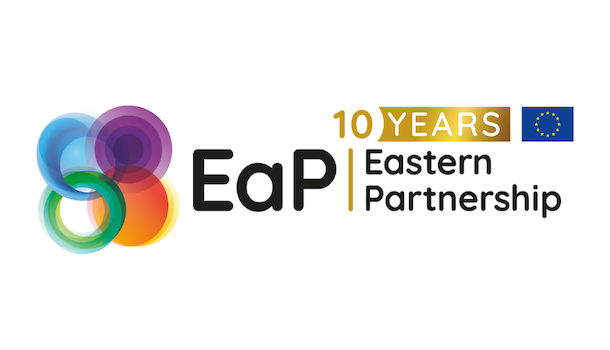Organisers: Minsk Dialogue Council on International Relations, the Romanian Presidency of the Council of the European Union
Partner: Konrad Adenauer Foundation
Languages: Russian and English (with simultaneous interpretation)
Format: Expert seminar followed by a public evening discussion
Participants: Acting and former diplomats, academics and policy experts (by invitation only)
Outcome: Non-paper with key findings and conclusions
May 2019 marks the 10thanniversary of the Eastern Partnership (EaP) initiative, which was launched to deepen and strengthen relations between the European Union, its Member States and six Eastern neighbour countries: Armenia, Azerbaijan, Belarus, Georgia, Moldova and Ukraine. Proclaimed as a “more ambitious partnership” in the Prague Declaration, the EaP’s evolution has taken place against the background of dramatic developments in some Eastern Partner states and within the EU. Moreover, the state of regional security and global strategic stability has also deteriorated since 2009 and confronted the EaP with multiple new challenges.
Consecutive biennial Eastern Partnership summits tried to respond to those challenges by stressing cooperation and adopting innovative approaches. For example, the latest summit in Brussels approved the results-oriented framework of the 20 Deliverables for 2020 and a streamlined architecture for the multilateral cooperation. Yet, many stakeholders argue that the EaP needs further reforms. And at times, reform ideas differ fundamentally. Whereas some stakeholders suggest that the EaP should be split into two tracks, others promote more inclusivity and oppose any dividing lines.
The seminar will take stock of the Eastern Partnership’s first decade by assessing its successes and failures, mapping the progress and efficiency of the 2020 agenda, and discussing its potential in a new geopolitical environment. It will gather a group of diplomats and leading experts from the EU and partner countries.
The first part of the seminar will be on-the-record and open to media representatives, whereas the second part will be held under the Chatham House Rule. In the evening, a public panel discussion will take place with a view to reaching out to a broader foreign policy community in Minsk (MPs, university professors and students, journalists, and NGO representatives). The discussion will be followed by a networking reception.
Programme
|
9.30-10.00 |
Registration |
|
10.00-10.30 |
Welcome remarks Open to the media Viorel Mosanu Ambassador of Romania to the Republic of Belarus Andrea Wiktorin Head of Delegation, Ambassador, Delegation of the EU to the Republic of Belarus Jakob Wöllenstein Director Country Office Belarus, Konrad-Adenauer-Stiftung, Germany Yauheni Preiherman Director, Minsk Dialogue Council on International Relations, Belarus |
|
10.30-11.00 |
Opening statements Open to the media Vladimir Makei Minister of Foreign Affairs of the Republic of Belarus AdrianaStanescu Ambassador for the Eastern Partnership, Director General for the Eastern Neighbourhood, Ministry of Foreign Affairs of Romania |
|
11.00-12.30 |
Session 1. Prague-Warsaw-Vilnius-Riga-Brussels: Assessing the evolution of the Eastern Partnership. Open to the media
Signe Burgstaller Ambassador at Large, Department for Eastern Europe and Central Asia, Ministry for Foreign Affairs of Sweden Jacek Multanowski Ambassador at Large, Eastern Partnership Division, Ministry of Foreign Affairs of Poland Mikheil Janelidze (TBC) Founding Partner and Chairman, EGE; former Vice Prime Minister and Foreign Minister of Georgia Vlad Kulminski Executive Director, Institute for Strategic Initiatives; former Political Advisor to the Prime Minister of Moldova, Moldova Dzianis Melyantsou Programme Coordinator, Minsk Dialogue Council on International Relations, Belarus Moderator Yauheni Preiherman Director, Minsk Dialogue Council on International Relations, Belarus |
|
12.30-13.30 |
Lunch |
|
13.30-15.00 |
Session 2. Towards 2020: are we delivering on the deliverables? Under the Chatham House Rule
Victor Boikov Directorate General for Neighbourhood and Enlargement Negotiations, European Commission Andrei Bushilo Director-General for Europe and Northern America, Ministry of Foreign Affairs of the Republic of Belarus Hennadiy Maksak Head, Ukrainian Prism Foreign Policy Council; Head, Ukrainian National Civil Society Platform, Ukraine Farhad Mammadov Consultant, Successful Strategies; Director, Centre for Strategic Studies under the President of Azerbaijan (2012-2019), Azerbaijan Yauheni Zadrutski Advisor, Belarusian Institute for Strategic Research, Belarus Moderator Viktar Shadurski Dean, Faculty of International Relations, Belarusian State University |
|
15.00-15.30 |
Coffee break |
|
15.30-17.00 |
Session 3. Another 10 years? What role for the Eastern Partnership in a turbulent Europe? Under the Chatham House Rule
Radoslav Darski Deputy Head of the Division for the Eastern Partnership, Regional Cooperation and the OSCE, European External Action Service Tevan Poghosyan Advisor to the President of Armenia; Director, International Center for Human Development, Armenia Markus Knauf Deputy Head of the Division of “EU External Relations”, Department of European Affairs, Federal Chancellery, Germany Gheorghe Magheru Ambassador (ret), Member of the Scientific Council, New Strategy Center, Romania Andrei Kazakevich Director, Institute of Political Studies “Political Sphere”, Belarus Moderator Jakob Wöllenstein Director Country Office Belarus, Konrad-Adenauer-Stiftung, Germany |
|
17.00-17.15 |
Concluding remarks |
|
18.30-20.00 |
Evening public discussion. Brexit, EU Parliament elections, a new European Commission … : What do political developments in the EU imply for the future of the Eastern Partnership? Introductory remarks Viorel Mosanu Ambassador of Romania to the Republic of Belarus Yauheni Preiherman Director, Minsk Dialogue Council on International Relations, Belarus Special address Valeriya Gubich Student, Belarusian State University; winner of the essay competition on the future of the Eastern Partnership Speakers Hannes Hanso Member of the European Parliament, Estonia Jakov Devcic Coordinator for European Policy, Konrad Adenauer Foundation, Germany Vlad Kulminski Executive Director, Institute for Strategic Initiatives; former Political Advisor to the Prime Minister of Moldova, Moldova Moderator Jakob Wöllenstein Director Country Office Belarus, Konrad-Adenauer-Stiftung, Germany |
|
20.00-21.15 |
Networking reception |


